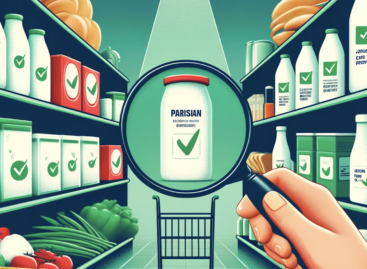The code of advertising ethics is being tightened at several points
The self-regulatory document of the advertising industry, which will enter into force at the end of the month, imposes new, sometimes even stricter requirements on advertisements than the current EU directives, warns the Baker McKenzie law firm. Many industries therefore need to review their advertising practices.
The Self-Regulatory Advertising Agency and the Hungarian Advertising Association have recently significantly modified and 24 professional organizations have already signed the Hungarian Advertising Code. The revised code will enter into force on June 30, and its main topics include environmental protection, new forms of digital advertising, influencer marketing, the protection of children and young people, gambling and the support of a healthy body image. It also introduces more detailed rules in many product categories, from health products and cosmetics to food, beverages and dietary supplements to vehicles.
“Given the entry into force of the new code, we recommend that the affected businesses and industries review their advertising practices
– suggests dr. Máté Laczkó, lawyer at Baker McKenzie.
The principles included in the regulation can also serve as guidelines for those market players who are not signatories to the code, but are unsure whether their commercial practices are appropriate.”
The new code has fundamentally modified the article related to environmental protection, and by regulating “green claims” about the positive impact of a product or company on the environment, it goes ahead of even the planned EU directive. The advertiser may not claim as its own merit an environmental advantage that results from a mandatory legal requirement or can be considered a general practice in the relevant market. Green or ecological indicators – such as environmentally friendly, environmentally conscious, eco, bio, organic – can only be used if it is certified by a trademark of an appropriate EU or domestic organization. There are no exceptions to the rule, so without a trademark such a claim cannot be made even if it would otherwise be scientifically supported.
Related news
Can I secretly record what was said at the business meeting?
As technology advances, it becomes easier to record any conversation.…
Read more >MRSZ Media cake: high inflation took away the growth of the Hungarian advertising market
The figures of the Hungarian Advertising Association (MRSZ) assessing the…
Read more >How to find the best Hungarian brands? The MagyarBrands Programme will help you!
The MagyarBrands Programme has been assessing Hungarian brands for fourteen…
Read more >Related news
Nébih experts examined the cheapest foods
In order to protect consumers, the National Food Chain Safety…
Read more >MBH Bank: Growth may accelerate in the second half of the year, next year GDP may increase by 3.7 percent
The outlook for the Hungarian economy is stable, so thanks…
Read more >Scitec Nutrition launched an unusual image campaign with everyday heroes
In May, Scitec Nutrition’s “Fighters. They won. Your turn!” with…
Read more >







